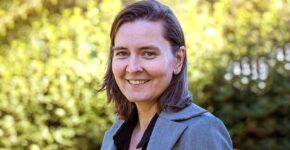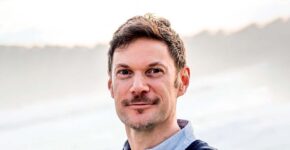Regional, national, and international mechanisms
Our ambition is to attract top-level scientists and facilitate the integration of young scientists with high potential.
To strengthen Montpellier's international scientific positioning and attractiveness, the I-SITE "Montpellier University of Excellence" is implementing an attractiveness program. This program enables the institute to welcome international researchers with the support of regional, national, and international initiatives (ATIP-AVENIR, MOPGA, UNESCO) or guest scientists at the MAK'IT Institute for Advanced Studies.
This program is supported by the Occitanie Region and the French government for MoPGA winners.
Approach
Applications are submitted by the institutions involved in hosting the candidate on site, and each proposal is assessed based on the excellence of the candidate's background, their ability to quickly take on scientific responsibilities, and the strategic or structural interest of the project for the University of Montpellier and its I-SITE MUSE partners. Each chair, lasting a maximum of three years, will be dedicated to hosting the candidate, their remuneration, and/or their environment, contributing to the implementation of their research project.
MUSE Chairs
Johanna Calderon
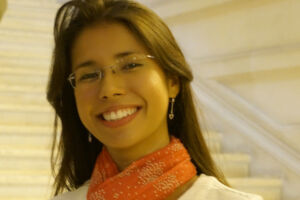
A researcher in neuropsychology and psychiatry at Harvard University until 2020, Johanna Calderon took up a MUSE chair at the University of Montpellier in January 2021, focusing on the neurodevelopment of congenital heart diseases within the PhyMedExp research unit (UM, Inserm, CNRS, Montpellier University Hospital).
Julie Josse
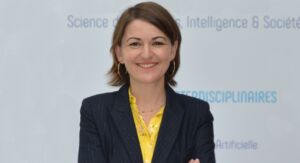
Coming from the École Polytechnique, Inria researcher Julie Josse, a specialist in causal inference, is set to join the Desbrest Institute of Epidemiology and Public Health (IDESP), one of the UM's new research structures under the 2021-2026 contract.
Alpha Keita
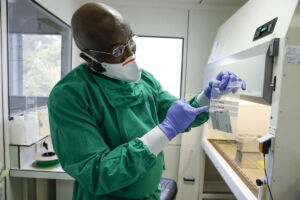
Recruited by TRANSVIHMI and CERFIG in 2018 and working at UM since 2020, Alpha Kabinet Keita holds a degree in medicine from the University of Conakry (Guinea) and a doctorate in infectious diseases (AMU). Alpha Kabinet Keita heads a research program on the Ebola virus and is one of 54 "ambassadors" for the Next Einstein Forum, a platform that connects science, society, and politics in Africa and the rest of the world—for human development.
Fabienne Remize

A specialist in wine microorganisms, biologist Fabienne Remize, who worked at the University of Réunion until December 2020, will join the University of Montpellier in January 2021 to head up a large unit, the UMR Sciences pour l'œnologie (SPO: University of Montpellier, INRAE, Institut Agro – Montpellier SupAgro) as part of the I-SITE MUSE attractiveness program.
Randal J. Wisser
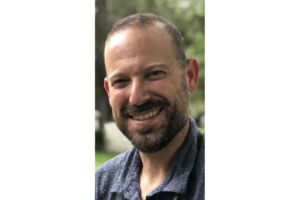
Arriving from the University of Delaware (USA),Randall J. Wisser, an internationally renowned quantitative geneticist, took up his position in January 2021 as INRAE Research Director at the Laboratory of Plant Ecophysiology under Environmental Stress in Montpellier to forge new partnerships and work at the interface of quantitative genetics and cereal ecophysiology. His arrival follows an EXPLORE mobility program, MUSE's international mobility program.
Attractiveness of ATIP-AVENIR researchers
Maud Borensztein
After completing a postdoctoral fellowship at the University of Cambridge (UK) and spending two years as a research fellow at the Institut Curie in Paris, Maud Borensztein joined the IGMM (UM, CNRS) in December 2020. Supported by MUSE and FRM and ATIP-AVENIR funds, she is setting up her team and financing work aimed at better understanding the epigenetic mechanism of X chromosome reactivation in female germ cells (oocytes).
Jakub GRUSZCZYK
Jakub GRUSZCZYK, winner of the ATIP-AVENIR award, joined the CBS joint research unit (UM, CNRS, Inserm) in December 2020 to take up a junior chair focusing on issues related to environmental health. His research project focuses on the structural characterization and functioning of the signaling pathway involved in the detoxification of chemical pollutants in humans. More information coming soon.
Karim MAJZOUB
Karim MAJZOUB, currently a researcher in the Marie Skłodowska-Curie program (Inserm), is the winner of the 2020 ATIP-AVENIR award. He will join the IGMM (UM, CNRS) in July 2021 to set up and lead a team that will focus its work on original research targeting the interactions between viral genomes (DNA for HBV, RNA for HDV) and cellular proteins necessary for the replication and persistence of these viruses in hepatocytes.
Attractiveness of MOPGA researchers in partnership with the State and the Occitanie Region
Carol Lee
Arriving from the University of Wisconsin (USA) in summer 2019, Carol Lee is developing her project Rapid Evolutionary Responses to Global Transformations in Salinity and Temperature at the MARBEC joint research unit (CNRS, Ifremer, IRD, UM) in collaboration with CEFE (CNRS, EPHE, INRA, IRD, SupAgro, UM, UM3) as part of the MOPGA program.
Delphine Renard
After completing a postdoctoral fellowship at the University of California (USA), Delphine Renard has been working since January 2018 at the Center for Functional and Evolutionary Ecology (CEFE, CNRS/UM), she has been developing new insights into the contributions of agrobiodiversity in reducing the impact of agricultural production on climate instability and shocks with the ASSET AgrobiodiverSity for a food-Secure PlanET project, conducted as part of the Make our Planet Great Again Program. She is now a tenured researcher at the CNRS.
Vincent Vadez
Back from IRCISAT in India, Vincent Vadez is developing the ICARUS research project within the DIADE joint research unit (IRD/UM) to find answers to the dual problem of drought and climate change on plants, particularly cereals, in order to understand how they can be made to better regulate water loss. This project is part of the Make our Planet Great Again program.
UNESCO Chair in partnership with the Occitanie Region
Edgar Morin
French philosopher and anthropologist-sociologist Edgar Morin, a modern thinker on complexity, has published no fewer than 40 books during his career, which have been translated worldwide. Emeritus Research Director at the CNRS and Doctor Honoris Causa at several international universities, Edgar Morin has held the UNESCO Chair in Complexity since December 2018 at the University of Montpellier, where he reflects on the societal issues addressed by I-SITE MUSE.
